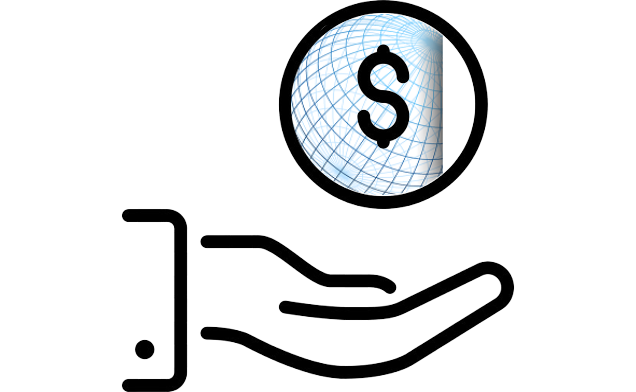
Ukraine’s people have experienced the most extreme distress in recent times, the kind of extreme distress that had not been since the Second World War. What is more, the future of the country has become extremely grim and uncertain. It is not at all clear just now when the ongoing war will stop, but in addition what is no less uncertain is how the enormous reconstruction and rehabilitation after the war that is obviously needed will be financed.
When the war ends, to what extent will Ukraine be indebted? This also brings in the question of to what extent all the ‘help’ that Ukraine has been receiving from its western supporters is a grant and to what extent this has to be paid back, and if a significant part of this has to be paid back, will interest be charged on this.
The IMF recently stated in an estimate that if the war ends in late 2025, Ukraine’s debt will be 108% of GDP around that time, and this can only start to fall in 2028. If the war continues into 2026, debt can rise to 136% of GDP.
If peace is to be reached soon at the initiative of Trump-led USA, Russia from its strong position can be expected to drive a hard bargain. It is highly unlikely then that Russia’s ‘stolen money’ in the form of profits derived from its frozen assets in the west will be available for Ukraine and any reparations are even less likely. It is in the context of this growing indebtedness and economic crisis that the post-war reconstruction and rehabilitation challenges must be considered by all well-wishers of the Ukrainian people.
In these difficult times can the Ukrainian establishment led by the President Mr. Zelensky provide appropriate leadership for peace? He is widely identified with positions on the basis of which it will be extremely difficult to clinch peace when the window of opportunity opens for this.
Senator J.D. Vance, whose words now carry much greater weight in his capacity as Vice President elect, had written in The New York Times on April 12, 2034 (‘The Math on Ukraine does not add up’) that the American and Ukraine leadership should accept that Mr. Zelensky’s stated goals for the return to 1991 borders are not at all realistic. In the same article Senator Vance had also criticized those in the USA who were arguing that arms supplies to Ukraine help US industry. He stated—the notion that we should prolong a ‘bloody and gruesome war’ because it has been good for American business is ‘grotesque’.
So, on the one hand, the position of the Ukrainian president is unrealistic and, on the other hand, this is unlikely to get the support of the new or incoming US administration. So can there be any justification for prolonging the war further with all the immense distress including loss of human lives that it involves on daily basis? This is a question that both Mr. Zelensky and several of his supporters among European leaders will have to ask themselves and seek an honest answer keeping in mind foremost the interests and safety of the Ukrainian people.
However as the indications so far are that the Ukrainian establishment led by Zelensky is unable to articulate the best interests of the Ukrainian people, there is clearly need for independent platforms, created by the Ukrainian people (perhaps among the diaspora if there are too many internal constraints) which can make possible continuing dialogue and discourse on how the interests of the common Ukrainian people are best achieved, moving forward, and how their safety and security can be best ensured. Such a continuing discourse, conducted sincerely and honestly, can play a very important role at this critical juncture, in making available and spreading various information, ideas and suggestions which can help a lot in finding the best path forward for Ukraine. Apart from obtaining and circulating the views of Ukrainian people, these platforms can benefit from the views of various senior and experienced scholars and statesmen of the world who have been known for their deep commitment to peace with justice.
*
Click the share button below to email/forward this article to your friends and colleagues. Follow us on Instagram and Twitter and subscribe to our Telegram Channel. Feel free to repost and share widely Global Research articles.
Don’t Miss Out on Global Research Online e-Books!
Bharat Dogra is Honorary Convener, Campaign to Save Earth Now. His recent books include Planet in Peril, Protecting Earth for Children, Man over Machine and A Day in 2071. He is a regular contributor to Global Research.
Featured image: Sputnik / Evgeny Kotenko

Can you help us keep up the work we do? If you have the means to make a small or large donation to contribute to our fight for truth, peace and justice around the world, your gesture will be much appreciated.
Comment on Global Research Articles on our Facebook page
Become a Member of Global Research
Source link

